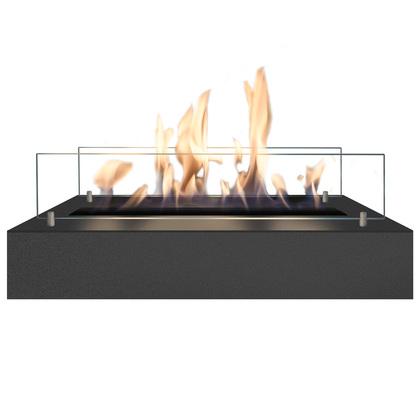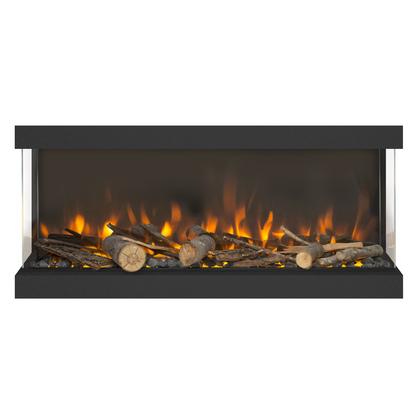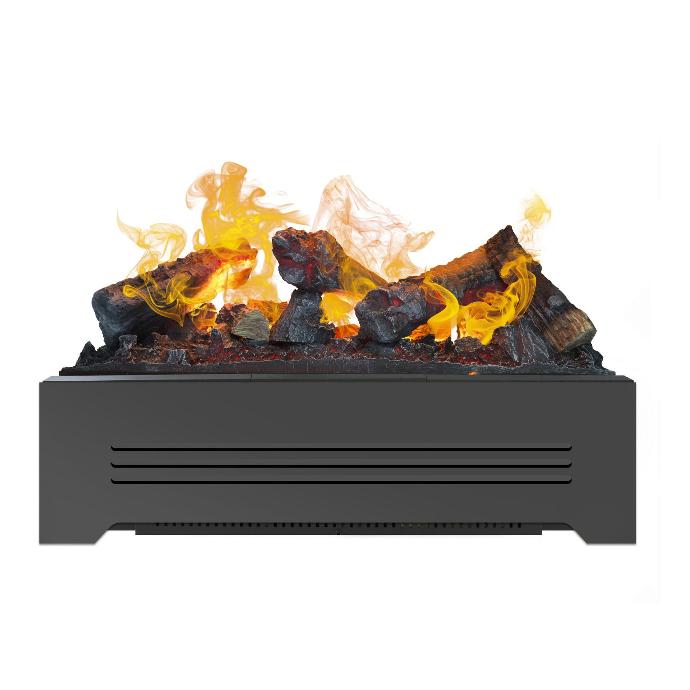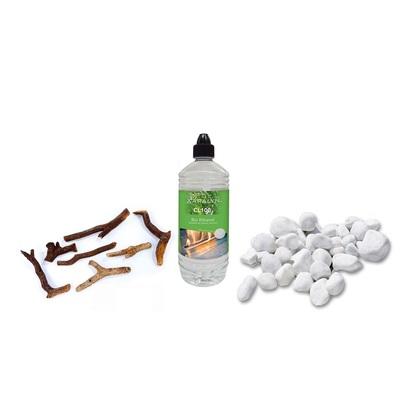Automatic bioethanol burner: Benefits, operation and comparison with manual models
An automatic bioethanol burner is the ideal choice for those who value comfort, technology, and a modern way of creating ambience with fire. Unlike a manual burner, an automatic burner ignites electronically and is operated via remote control or smartphone app. In this article, you’ll learn everything about how it works, how to install it, fuel usage, and the pros and cons compared to manual models.
What is an automatic bioethanol burner?
An automatic bioethanol burner is an innovative system that delivers bioethanol into the burner trough using an electronic pump. Igniting the flame is as simple as pressing a button—via remote control or a smartphone app. Depending on the model, fuel can be pumped from an external jerrycan using the integrated pump system.
Thanks to advanced sensors and software, automatic burners are often equipped with smart safety features such as:
- Automatic shutdown in case of overheating
- Fuel level monitoring
Benefits of an automatic bioethanol burner
- Electronic ignition – No lighter or matches required
- Remote or app control – Operate your fireplace from your couch
- Adjustable flame height – Set the mood and heat to your preference
- Minimal evaporation when not in use
Installation and maintenance
Installing an automatic bioethanol burner requires professional expertise. The burner must be:
- Connected to a power outlet
- Built into a suitable fireplace frame or custom furniture
- Installed by a qualified technician
No chimney or flue is required, but good room ventilation remains important.
Maintenance tip: Due to the electrical and pump components, regular maintenance is strongly recommended. Ideally, arrange a service contract at the time of purchase to prevent long-term malfunctions.
Refueling an automatic bioethanol burner
Automatic burners are typically refueled via a large-volume jerrycan, from which the burner draws the fuel automatically.
Important: Store jerrycans in a cool place. Large-volume jerrycans are made from different materials than standard 1L bottles. Over time, the ethanol can degrade the container material and reduce shelf life.
Fuel consumption
Fuel consumption in automatic bioethanol burners is generally higher than in manual models. This is due to:
- The way the pump feeds ethanol to the burner
- The typically higher flame settings available by default
You can reduce consumption by choosing a lower flame setting. Unlike manual models, automatic burners are fully sealed when not in use, so no evaporation occurs during downtime.
Automatic vs. manual bioethanol burner
| Feature | Manual Burner | Automatic Burner |
|---|---|---|
| Remote control | Not available | Yes |
| Adjustable flame height | No | Yes |
| Refueling | Manual | Partially automatic |
| Fuel consumption | Low | Higher |
| Maintenance | None | Required |
| Installation | Simple (DIY possible) | Professional required |
| Power connection | Not needed | Required |
| Economic lifespan | 30 years | 6 years |
Conclusion: Is an automatic bioethanol burner right for you?
An automatic bioethanol burner is perfect for those who enjoy convenience, luxury, and smart features. It’s especially suitable if:
- You use your fireplace frequently but for short periods
- You want remote or app control
If you primarily want your fireplace for long cozy evenings, prefer a low-maintenance system, or are budget-conscious, a manual burner is probably a better fit—it's more affordable, easier to install, and maintenance-free.



